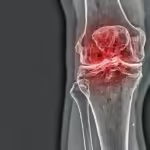As we age, our bodies become more vulnerable to the effects of alcohol, a fact that has been brought into sharp focus by a recent study published in JAMA Network Open. The study reveals a troubling connection between regular alcohol consumption after age 60 and an increased risk of early death, particularly from cancer and cardiovascular issues. This finding challenges long-held beliefs about the safety of moderate drinking in older adults.
Alcohol Consumption and Health Risks
For years, public health messaging suggested that moderate alcohol consumption—typically one or two drinks per day—was not only safe but potentially beneficial. However, recent studies, including this one, have exposed flaws in earlier research methods that led to these conclusions. Experts now warn that any amount of alcohol can pose significant health risks, especially as we age.
A significant study published in JAMA Network Open on August 12 has added to the growing body of evidence that alcohol, even in moderate amounts, can be harmful. The study analyzed health data from over 135,000 adults aged 60 and older in the United Kingdom, focusing on those with health-related or socioeconomic risk factors. The findings revealed that moderate alcohol consumption was associated with an increased risk of cancer and disease-related mortality, especially among those with existing health issues or lower socioeconomic status.
The Study
Researchers in Spain conducted a comprehensive analysis of health data from over 135,000 people, all aged 60 or older, living in the United Kingdom. The participants’ health information was sourced from the UK Biobank database, and the average age at the start of the study was 64. Over 12 years, the researchers compared health outcomes between occasional drinkers and those who consumed alcohol daily.
High-Risk Drinking
The study categorized participants into different groups based on their drinking habits. Occasional drinkers, who consumed less than two drinks per week, were compared to high-risk drinkers. In men, high-risk drinking was defined as averaging nearly three drinks per day or more, while for women, it was about a drink and a half per day or more. The findings were stark:
- 33% Increased Risk of Early Death: High-risk drinkers faced a significantly higher likelihood of dying prematurely.
- 39% Increased Risk of Cancer Death: Regular alcohol consumption sharply raised the risk of dying from cancer.
- 21% Increased Risk of Cardiovascular Death: Drinking heavily was also linked to an increased risk of death from heart and blood vessel-related issues.
Even more moderate drinking habits were associated with an elevated risk. Those who averaged about one drink per day still faced an 11% higher risk of dying from cancer, especially if they had pre-existing health conditions or lived in less affluent neighborhoods.
Is Wine Safer?
Interestingly, the study suggested that drinking primarily wine or consuming alcohol mostly with meals might pose a lower risk. However, the researchers cautioned that this could be due to other factors, such as healthier lifestyles or the slower absorption of alcohol when consumed with food. More research is needed to fully understand these potential differences.
Changing Attitudes Toward Alcohol
Public perception of alcohol’s health impacts is also shifting. According to a recent Gallup poll, 65% of young adults (ages 18 to 34) believe that drinking can negatively affect health. In contrast, only 39% of adults aged 55 or older share this view. This generational divide highlights the growing awareness of it’s dangers among younger populations, a shift that may influence future public health policies.
This study serves as a critical reminder that alcohol consumption in older age is far from harmless. As we age, our susceptibility to alcohol’s negative effects increases, making moderation—or even abstinence—a wiser choice for those looking to maintain their health and longevity.
Staying informed and making conscious choices about alcohol can be a key factor in living a longer, healthier life.




Pingback: Understanding Gout: Causes, Symptoms, Management, Gout Diet and Foods to Avoid - Healing Doctor